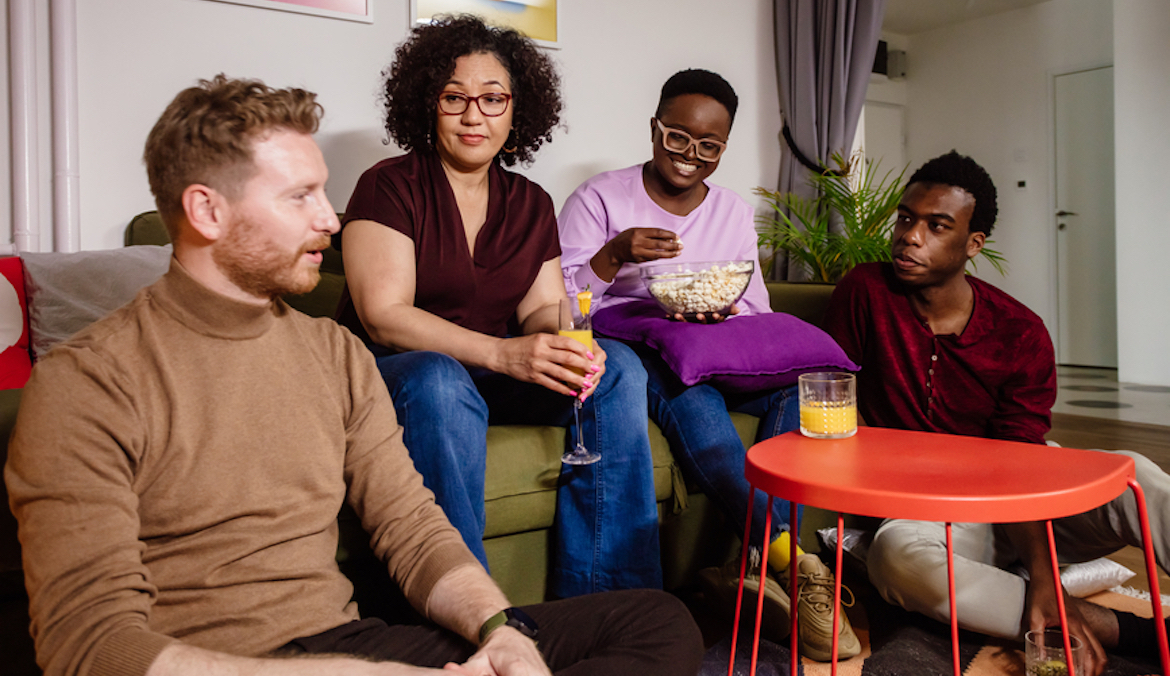[ad_1]
“While extroverts may feel recharged by being around others, there is always a possibility of overdoing something,” says therapist Jennifer Teplin, LCSW. Just because extroverts thrive on socializing while it’s happening doesn’t mean they’ll necessarily be any less socially exhausted than introverts after back-to-back events wrap up. In fact, a small 2016 study of 48 students in Finland found that while acting in an extroverted, social way was associated with positive mood and higher energy in the moment, it was also linked with mental depletion three hours later—in both introverts and extroverts.
“Extroverts may be tempted to overcommit due to the feeling that they ‘should’ be doing something and have a fear of missing out.” —Jennifer Teplin, LCSW, therapist
The real rub with extroverts is the fact that they’re often more likely to ignore early inklings of social exhaustion and push through a packed schedule than an introvert would be. “Extroverts, in particular, may be tempted to overcommit due to the feeling that they ‘should’ be doing something and have a fear of missing out, or because they imagine that others expect them to do so,” says Teplin. Not to mention, extroverts may often find themselves with lots of opportunities to, in fact, overfill their calendars because they tend to maintain many relationships across social circles, like at school, work, and in their neighborhood, says clinical psychologist Dina Wirick, PhD.
Alongside this high desire and opportunity to socialize is also the extroverted tendency to participate 100-percent in any social interaction. “When extroverts commit to social activities, they often do so with the intention of showing up fully,” says therapist Elizabeth Marks, LCSW. “When they have too many social gatherings in a row, it can begin to take excessive effort to be authentic in all of these situations.” Rather than dip out, as introverts might, they’re likely to feel all the more pressure to embody their best social selves and “put on a show” for others, says Marks, which can lead to exhaustion and even social anxiety.
But ironically, if you subscribe to the extroverted mindset of always being “on” in a social setting, you could find it tough to identify this exhaustive spiral in action. Below, mental-health experts share the key signs of social exhaustion in extroverts, plus tips for effectively recharging your social battery—no significant alone time needed.
How to tell if you’re approaching social exhaustion, even as an extrovert
Because your extroverted tendency to say “yes” to all of the things might override your perception of your own fatigue, you may still be committing to social events even when you’re nearing exhaustion. But according to neuropsychologist Sanam Hafeez, PhD, you could also find yourself forgetting about events you agreed to attend, arriving late, getting distracted, or even dreading certain outings you were once excited about.
When your calendar becomes really overloaded, you might also be tempted to cancel on others last-minute—again, you probably didn’t realize sooner how overbooked you were—or find yourself feeling physically tired or worn out, says Dr. Wirick. “You could also start to feel overwhelmed with the other demands in your life or may experience stress or irritability.”
How to recover from social exhaustion as an extrovert
Plan a hangout in a calm environment
As an extrovert, you likely don’t savor too much alone time—which is totally okay. “Recharging doesn’t have to mean isolation,” says Teplin. Even if you can manage a good deal of socializing before getting exhausted, chances are, things like crowded spaces, loud music, or lots of traveling will still drain you over time. So in between high-key events, make sure to sprinkle in some chill gatherings, suggests Dr. Wirick.
“Extroverts can benefit from recharging in a calm setting, like a quiet space amongst other people or while doing an activity that they find relaxing,” agrees Teplin. Think: Having lunch in a not-too-crowded park or playing a board game at a friend’s place.
Book a non-social social outing
Not all activities with friends involve direct socializing. And the ones that don’t could sate your desire to be around people without making you feel like you have to “entertain” them, says Marks. “Going to an exercise class or to see a movie might be a great activity to feel the comfort of friends without having to be overly social,” she says.
Prioritize smaller groups of closer friends
Limiting yourself to more intimate group gatherings or one-on-one friend dates in the wake of a packed social agenda can also help you recharge as an extrovert, says Dr. Hafeez. “This way, you can receive the face-to-face contact with less chance of getting socially overwhelmed.” Ideally, these gatherings are also with people in your inner circle—the ones with whom you feel most comfortable being your honest self, adds Marks, so there’s no pressure to get ready in advance or to act a certain way at the get-together.
Make a point of leaving gaps in your schedule
“Although you might believe that engaging in social activities is your self care, everyone can benefit from some flex time in their schedule when they are not expected to be somewhere,” says Dr. Wirick. (Yes, that includes you, extroverts.) If you’ve been scheduling yourself back-to-back on the weekends or after work, make a point of penciling in 30-minute blocks of time where you’re not accountable to anyone but yourself. Use this time to journal, listen to music, read, or do some other brief solo activity to reset your social battery.
[ad_2]
Source link

